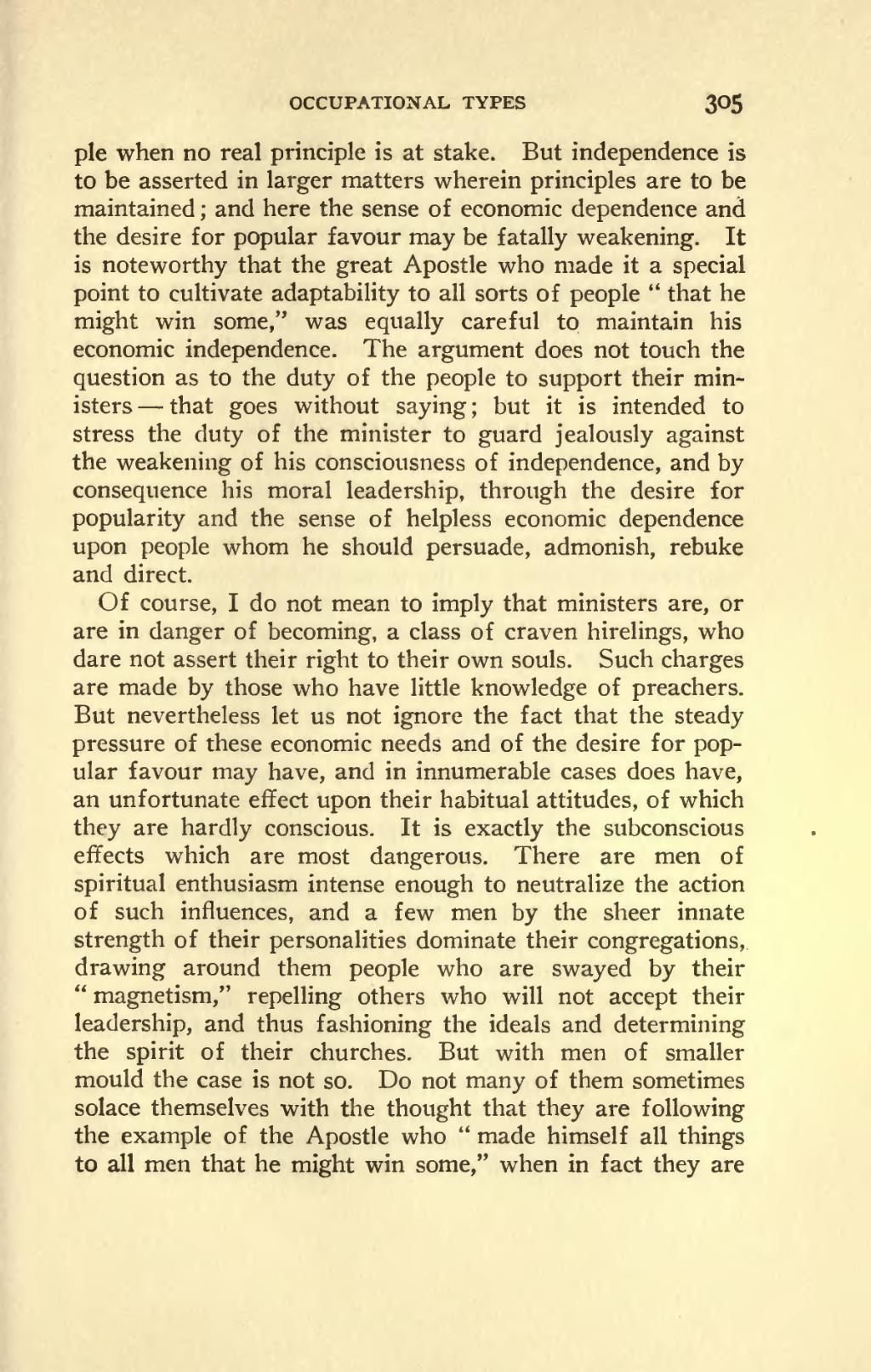OCCUPATIONAL TYPES
pie when no real principle is at stake. But independence is to be asserted in larger matters wherein principles are to be maintained ; and here the sense of economic dependence and the desire for popular favour may be fatally weakening. It is noteworthy that the great Apostle who made it a special point to cultivate adaptability to all sorts of people " that he might win some," was equally careful to maintain his economic independence. The argument does not touch the question as to the duty of the people to support their min isters that goes without saying; but it is intended to stress the duty of the minister to guard jealously against the weakening of his consciousness of independence, and by consequence his moral leadership, through the desire for popularity and the sense of helpless economic dependence upon people whom he should persuade, admonish, rebuke and direct.
Of course, I do not mean to imply that ministers are, or are in danger of becoming, a class of craven hirelings, who dare not assert their right to their own souls. Such charges are made by those who have little knowledge of preachers. But nevertheless let us not ignore the fact that the steady pressure of these economic needs and of the desire for pop ular favour may have, and in innumerable cases does have, an unfortunate effect upon their habitual attitudes, of which they are hardly conscious. It is exactly the subconscious effects which are most dangerous. There are men of spiritual enthusiasm intense enough to neutralize the action of such influences, and a few men by the sheer innate strength of their personalities dominate their congregations, drawing around them people who are swayed by their " magnetism," repelling others who will not accept their leadership, and thus fashioning the ideals and determining the spirit of their churches. But with men of smaller mould the case is not so. Do not many of them sometimes solace themselves with the thought that they are following the example of the Apostle who " made himself all things to all men that he might win some," when in fact they are
�� �
